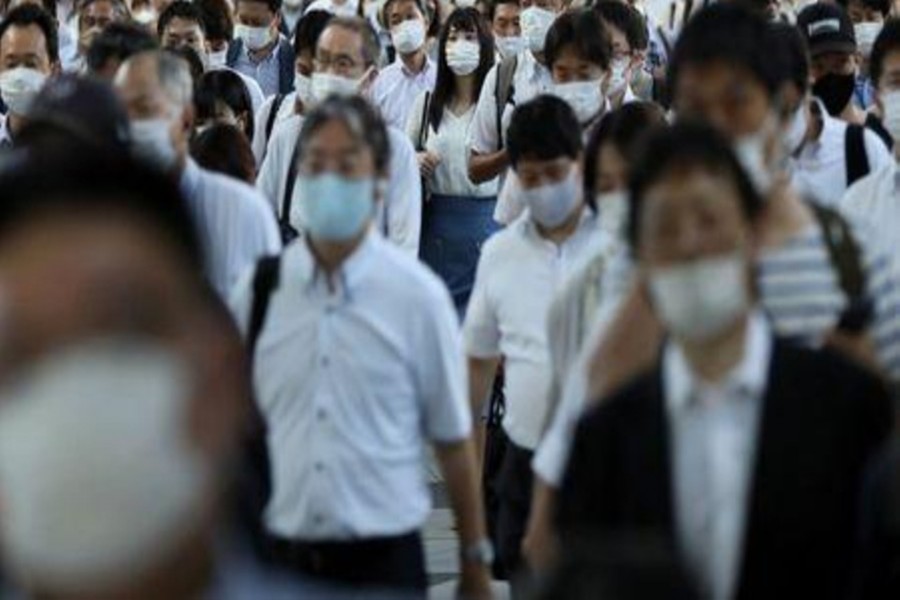Japan will only hospitalise most serious Covid patients as infections rise

Published :
Updated :

Japan will focus on hospitalising patients who are seriously ill with COVID-19 and those at risk of becoming so while others isolate at home, officials said, amid worries about a strained medical system as cases surge in Olympics host city Tokyo.
The country has seen a sharp increase in coronavirus cases, and is recording more than 10,000 daily new infections nationwide. Tokyo had a record high of 4,058 on Saturday.
Fewer elderly people, most of whom are vaccinated, are getting infected, Chief Cabinet Secretary Katsunobu Kato told reporters.
"On the other hand, infections of younger people are increasing and people in their 40s and 50s with severe symptoms are rising," he said. "With people also being admitted to hospital with heat stroke, some people are not able to immediately get admitted and are recovering at home."
Prime Minister Yoshihide Suga, announcing the change on Monday, said the government would ensure that people isolating at home can be hospitalised if necessary.
Previous policy had focused on hospitalising a broader category of high-risk patients, reports Reuters.
Some worry the shift could lead to more deaths, and opposition Constitutional Democratic Party of Japan leader Yukio Edano blasted change.
"They call it in-home treatment but it's actually in-home abandonment," NHK public TV quoted him as saying.
Japan on Monday expanded its state of emergency to include three prefectures near Tokyo and the western prefecture of Osaka. An existing emergency in Tokyo - its fourth since the pandemic began - and Okinawa is now set to last through Aug. 31.
The country has avoided a devastating outbreak of the virus, with about 932,000 total cases and just over 15,000 deaths as of Sunday.
But it is now struggling to contain the highly transmissible Delta variant even as the public grows weary of mostly voluntary limits on their activities and the vaccination rollout lags.
Just under 30 per cent of the population is fully vaccinated, including three-quarters of those 65 and over.
Nearly 70 per cent of hospital beds for seriously ill COVID-19 patients were filled as of Sunday, Tokyo data showed.
According to health ministry guidelines, seriously ill patients are defined as those needing admission to Intensive Care Units (ICU) or artificial respirators.
The Tokyo Shimbun newspaper said 12,000 patients were isolating at home, a 12-fold increase in the past month.
Suga and Olympics organisers say there is no link between the July 23-Aug. 8 Summer Games and the sharp increase in cases. Medical experts, however, have said holding the Olympics sent a confusing message about the need to stay home, contributing to the rise.
Unlike the voluntary restrictions and low vaccination rates elsewhere in Japan, more than 80 per cent of the people in the Olympic village in Tokyo for athletes and coaches are vaccinated, testing is compulsory and movement is curtailed.
Organisers on Tuesday announced 18 new Games-related COVID-19 cases, bringing the total since July 1 to 294.


 For all latest news, follow The Financial Express Google News channel.
For all latest news, follow The Financial Express Google News channel.